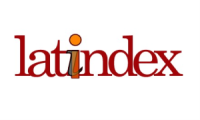Editorial Policies
FREE ACCESS POLICY
Article Processing Charges (APCs): FREE.
Item Shipping Charges: FREE.
All articles in this magazine follow the Open Access Policy
Document of Declaration of Ethics and Expertise in Publication
ETHICS POLICY
Publication Ethics Policy and Declaration of Improper Procedures in Publications
This Journal is committed to ethics and quality in its publications. We uphold high standards of ethical behaviour that are expected of all parties involved in the publication process: authors, editors, reviewers and editorial staff. Plagiarism and any other kind of unethical behaviour are not tolerated.
Duties of the Editors:
- Publication Decision: The responsibility for deciding whether or not to publish submitted articles lies with the editor of the journal. This decision is guided by the guidelines established by the editorial board, always in compliance with legal requirements relating to defamation, copyright infringement and plagiarism. The editor may consult the editorial board or collaborators to assist in the decision-making process.
- Fair Rules: The editor must evaluate manuscripts on the basis of their intellectual content, without any discrimination as to the race, gender, sexual orientation, religious belief, ethnic origin, nationality or political philosophy of the authors.
- Confidentiality: The editor and editorial team must guarantee the confidentiality of all information related to a submitted manuscript, sharing it only with the author, reviewers, potential collaborators, other editorial advisors and the editor, as necessary.
- Disclosure and Conflicts of Interest: The editor must not use unpublished information in his/her own research without the express written consent of the author. In addition, the editor must refrain from evaluating manuscripts in which there is any conflict of interest, whether due to competitive or collaborative relationships or any other connection with the authors, companies or institutions associated with the articles.
- Participation and Co-operation in Research: The editor must adopt reasonable measures in response to ethical complaints lodged about a submitted manuscript or published article.
- The ITEGAM-JETIA Journal only publishes scientific articles involving human subjects with approval from the Ethics Committee of institutions accredited by the country of origin and approval from vulnerable populations (i.e., children) as per the consent of parents/guardians.
Duties of Reviewers:
- Contribution to Editorial Decision: Peer review assists the editor in making editorial decisions and, through communications with the author, can also contribute to improving the article.
- Punctuality: Any selected reviewer who does not feel qualified to evaluate the research presented in a manuscript or who knows that they will not be able to carry out the review in a timely manner should inform the editor and withdraw from the review process.
- Confidentiality: All manuscripts received for review must be treated as confidential documents and must not be displayed or discussed with third parties.
- Standards of Objectivity: Reviews should be conducted objectively, with reviewers expressing their opinions in a clear and reasoned manner.
- Source Recognition: Reviewers should identify relevant published works that have not been cited by the authors. In addition, they must inform the editor of any substantial similarity or overlap between the manuscript under evaluation and another published document of which they are aware.
- Disclosure and Conflicts of Interest: Privileged information or ideas obtained during peer review must be kept confidential and not used for personal gain. Reviewers should decline to evaluate manuscripts in which they have any conflict of interest, whether due to competitive, collaborative or other connections with the authors, companies or institutions associated with the articles.
Authors' Duties:
- Originality and Plagiarism: Authors must ensure that their works are entirely original. If they use works or excerpts by other authors, these must be duly cited or referenced. Plagiarism in any form is unethical and unacceptable behaviour.
- Multiple, redundant or competing publications: In general, authors should not publish manuscripts that describe essentially the same research in more than one journal or primary publication. Submitting the same manuscript to several journals simultaneously and/or publishing the same article in different journals is considered unethical and unacceptable behaviour.
- Acknowledgement of Sources: It is essential that the work of others is properly recognised. Authors should cite publications that have been influential in defining the nature of the work reported. Information obtained privately, such as in conversations, correspondence or discussions with third parties, should not be used or disclosed without explicit written permission from the source. Similarly, information obtained during confidential services, such as reviewing manuscripts or grant applications, should not be used without the explicit written permission of the author of the work involved.
- Authorship of the article: Authorship should be attributed only to those who contributed significantly to the conception, design, execution or interpretation of the reported study. All those who made relevant contributions should be listed as co-authors. Those who participated in substantive aspects of the research project should be recognised or listed as contributors. The lead author should ensure that all appropriate co-authors are included and that no inappropriate co-authors are present in the article. In addition, they must ensure that all co-authors have reviewed and approved the final version of the document and agreed to its submission for publication.
- Disclosure and Conflicts of Interest: Authors must declare in their manuscripts any conflict of interest, whether financial or substantial, that could influence the results or interpretations of the study. All sources of financial support for the project must be fully disclosed.
- Fundamental Errors in Published Works: If an author identifies a significant error or inaccuracy in their published work, it is their obligation to immediately notify the journal editor or publisher and collaborate to correct or retract the article.
Publisher's duties
- We are committed to ensuring that revenue from advertising, reprints or other commercial sources does not affect or influence editorial decisions. Our articles undergo a rigorous review to ensure the quality of scientific publications, and we use CrossCheck (CrossRef's plagiarism detection software) to support this process.
*This Ethics Policy is based on Elsevier's recommendations and COPE's Best Practice Guidelines for Journal Editors.










